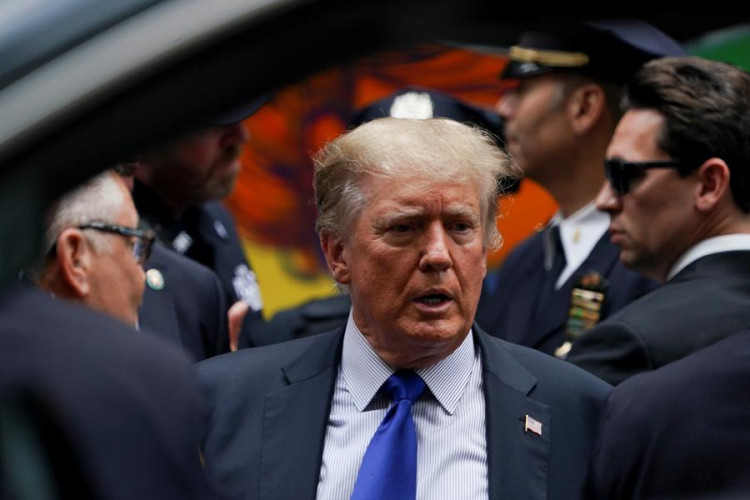In a heated exchange during the defamation trial of E. Jean Carroll against former President Donald Trump, New York federal Judge Lewis Kaplan sternly reprimanded Trump's lawyer, Alina Habba, instructing her to "sit down" after she requested a postponement of the trial. Habba's request for delay was to allow Trump to attend his mother-in-law's funeral, but it was met with a firm refusal from the judge, leading to a tense courtroom atmosphere.
The confrontation unfolded as Carroll, a former Elle magazine advice columnist, began testifying about the harm she allegedly suffered from Trump's denial of her rape accusation. "I am here because Donald Trump assaulted me and when I wrote about it he lied and he shattered my reputation," Carroll stated in court. She expressed her distress over the impact on her reputation, exacerbated by recent social media backlash, emphasizing her lifelong effort in building her professional image.
The trial, taking place in U.S. District Court in Manhattan, centers around determining the damages Trump owes Carroll for defamatory statements made both during his presidency in 2019 and afterward. Carroll accuses Trump of raping her in a department store in the mid-1990s, a claim he has repeatedly denied.
Habba had earlier sought a trial postponement to accommodate Trump's attendance at the funeral of Melania Trump's mother. However, her request was not only rejected by Kaplan but also criticized by Trump as part of a broader condemnation of judges involved in his legal cases. Habba's persistence in requesting the delay led to Kaplan's sharp rebuke, marking a significant moment in the proceedings.
Trump's legal strategy in this second trial marks a departure from the first. His team, now led by Habba, is focusing on blaming Carroll for the harm to her reputation, suggesting that she should have anticipated the backlash from going public with her accusations. Habba argued in her opening statement that Carroll exacerbated the effects of Trump's statements by actively speaking out about the matter, thereby making it part of her identity.
This approach contrasts starkly with the strategy employed by Trump's former legal counsel in the initial trial, where they refrained from direct accusations against Carroll. Instead, they focused on denying the assault and avoiding further fueling the controversy. However, with the change in legal representation and strategy, the defense now openly suggests that Carroll sought public attention and monetized her accusations.
Carroll is expected to continue her testimony, as the trial progresses with the new defense approach, which has shifted from a simple denial to a more aggressive stance of placing responsibility on the plaintiff. The outcome of this trial will not only impact the individuals involved but also set a precedent in high-profile defamation cases.






